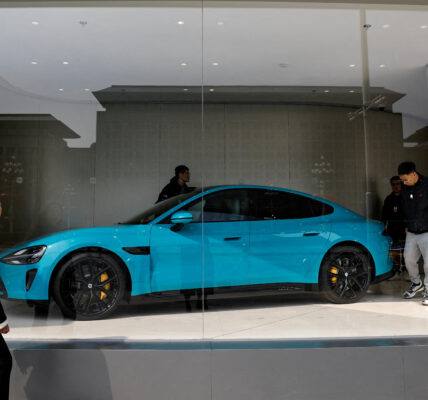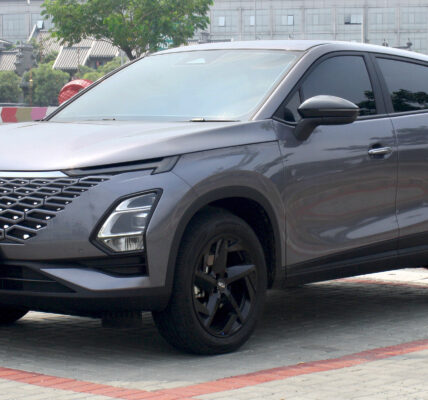German chancellor Olaf Scholz played down fears of a potential trade war triggered by the EU’s anti-subsidy investigation into Chinese electric vehicles, while making a strong case for globalised markets with a level playing field for all participants.
In his first comments on the EV probe since it was announced two weeks ago, Mr Scholz appeared to pour cold water on the European Commission’s move, and warned against protectionist measures that could harm domestic industries.
When the possibility of an EU-China trade war was broached, he said: “Obviously that will not happen.”
“We want to sell our cars in in Europe, in North America, in Japan, in China, in Africa, in South America, in all the places,” he said in a discussion with Bloomberg’s Stephanie Flanders at the Berlin Global Dialogue.
“But this means that we are also open to get the cars from other countries on the German market,” he added.
“Now there are German cars in Korea, and Korean cars in Germany — what is the problem?”
Germany stands to be the country most affected in the EU in the event of a tit-for-tat tariff dispute with China. If levies are imposed, Beijing’s most powerful response would be to restrict access to its market — which would hit German carmakers including VW and BMW hardest as they collectively sold 4.6m cars there last year.
China initially reacted aggressively to the announcement by European Commission president Ursula von der Leyen, calling it “a naked act of protectionism”.
That stoked concerns about a potential trade war but they eased after a subsequent trip to China by the EU’s Valdis Dombrovskis.
Chinese president Xi Jinping’s government has avoided the kind of rhetoric that could endanger an economic relationship worth €852bn.
Earlier, the head of the body that represents EU heads of state and government also sought to dial down any apparent tension with China on the electric vehicles issue.
Europe is not spoiling for a trade war and is instead focusing on a “rebalancing” to avoid excessive reliance on one country, Charles Michel, the president of the European Council, said. “We’d like to rebalance our relationship with China to address critical vulnerabilities,” Mr Michel said. “It’s never good when you’re so dependent on one country.”







